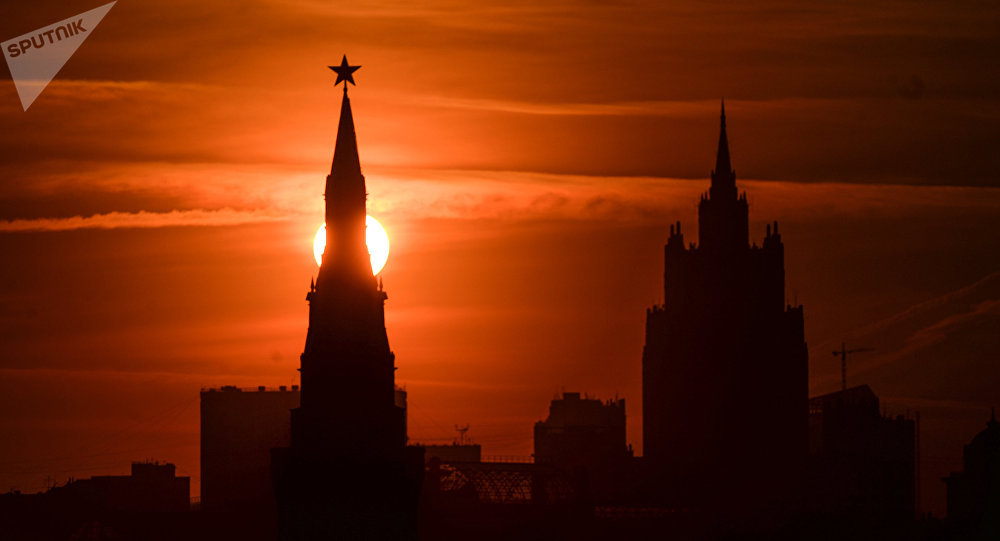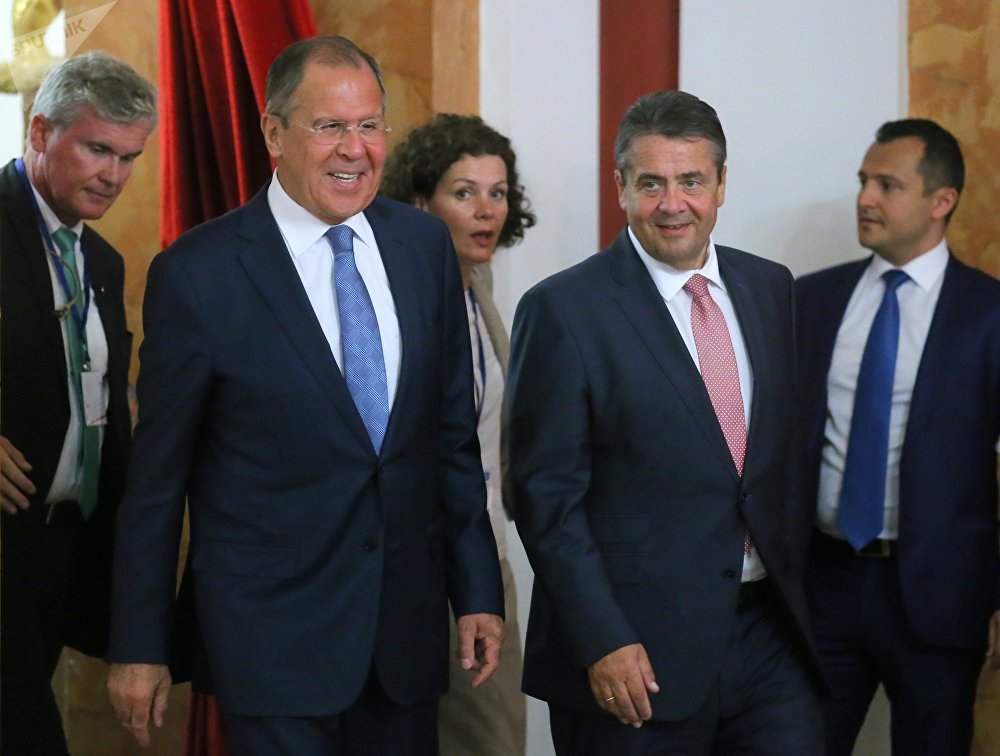
 Washington continues to misread Moscow, Russian economist Ivan Danilov writes for RIA Novosti. Instead of "bending to the will" of US policymakers, the Russian leadership clearly signals to Washington that it perceives the White House's assertiveness not as a sign of strength but as a sign of weakness.
Washington continues to misread Moscow, Russian economist Ivan Danilov writes for RIA Novosti. Instead of "bending to the will" of US policymakers, the Russian leadership clearly signals to Washington that it perceives the White House's assertiveness not as a sign of strength but as a sign of weakness.
Washington misreads Russia and makes flawed prognoses regarding Moscow's potential reaction to this or that US move, Ivan Danilov, a Russian economist and author of the popular blog Crimson Alter, writes in his recent op-ed for RIA Novosti.
"Washington has a wrong idea on how the Russian society and the Russian political elite are organized," Danilov noted.
"In sum, these illusions — to which Clinton supporters are mostly exposed, but which the Trump team also has — create a dangerous situation and provide the American leadership (regardless of its political affiliation) with the false belief that Russia could be pressured and forced to surrender or to make concessions," he pointed out.
Danilov highlights that in response to Washington's muscle-flexing the Russian political and financial elite have repeatedly signaled that "Russia is not afraid, that the elite is consolidated and will stand its ground till the end."According to the economist, it appears that the Trump administration makes concessions to US hawks because it has deluded itself into believing that either Russian President Vladimir Putin or the Russian elite will finally "get scared" and "bend" to Washington's will.
However, as a rule, the Kremlin's reaction to the US's assertive political gestures doesn't meet the expectations of US policymakers: the economist referred to the latest US sanctions bill and the April escalation of the Syrian crisis.
The Russian leadership has demonstrated to Washington that it perceived the US president's tough moves not as a sign of strength, but as a sign of weakness, Danilov highlighted.
He quoted Russian Prime Minister Dmitry Medvedev's Facebook statement released in response to the US Tomahawk strike on the Syrian Arab Army's Shayrat airfield on April 7.
"This military action is a clear indication of the US president's extreme dependency on the opinion of the Washington establishment, the one that the new president strongly criticized in his inauguration speech. Soon after his victory, I noted that everything would depend on how soon Trump's election promises would be broken by the existing power machine. It took only two and a half months," Medvedev pointed out.

Following the adoption of a new package of anti-Russian sanctions by the White House the Russian prime minister "struck" again.
"The US establishment has fully outwitted Trump; the president is not happy about the new sanctions, yet he could not but sign the bill. The issue of new sanctions came about, primarily, as another way to knock Trump down a peg. New steps are to come, and they will ultimately aim to remove him from power. A non-systemic player has to be removed," Medvedev wrote.
"The Trump administration has shown its total weakness by handing over executive power to Congress in the most humiliating way. This changes the power balance in US political circles," the Russian prime minister elaborated.Does it work? Yes, indeed, Danilov believes: the White House has recently admitted that it had no alternative but to suspend its covert CIA program in Syria aimed at arming and training so-called "moderate" Syrian rebels.
"The joint bluff of American hawks and the Trump administration ended up in a very humiliating defeat in Syria and the recognition that [Syrian President Bashar] Assad will stay in power," the economist wrote.
Danilov believes that the new sanctions law will face the same fate.
"Being confronted once again with the demonstration of the determination of the Russian society and authorities not to make concessions, the Trump administration won't implement the restrictions which depend on the executive power," he assumed.
While it will be hard to lift restrictive measures implemented under Barack Obama against Russia, Moscow has already reconciled itself to the idea that sanctions could remain in place for decades to come, he remarked.
"Perhaps, it is necessary for Trump to find himself in embarrassing geopolitical situations… in order to start substantive negotiations with the Kremlin," Danilov suggested.

Meanwhile, the US sanctions law has triggered a wave of criticism from Europe with German Foreign Minister Sigmar Gabriel ranting that the anti-Russia measures are "diametrically opposed to the interests of Germany and the EU."
"The draft law makes clear that they're pursuing economic interests and we think that's not acceptable," Gabriel said Friday in the northern German city of Wolfsburg.
"Aggressively combining foreign policy issues with American economic interests and saying: we want to drive Russian gas out of the European market so we can sell American gas there is definitely not something we can accept," he emphasized, as citedby Reuters.
Similarly, European Commission President Jean-Claude Juncker dropped the hint that Brussels stands ready to "defend our economic interests vis-à-vis the United States."
For its part, the Chinese Foreign Ministry stated that Beijing is against any unilateral sanctions imposed by any country, including those recently enacted by the US, which imposed tough restrictive measures against Russia, Iran and North Korea.
"If this goes on, then it's the US, not Russia, which will soon find itself in full political isolation," Danilov concluded.



_jpg/250px-ElbeDay1945_(NARA_ww2-121).jpg)






